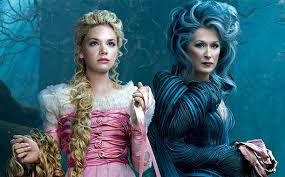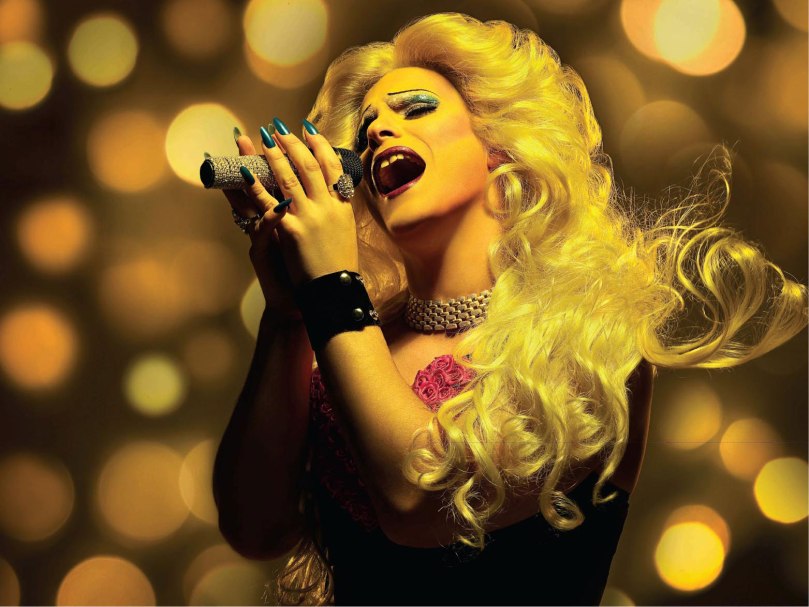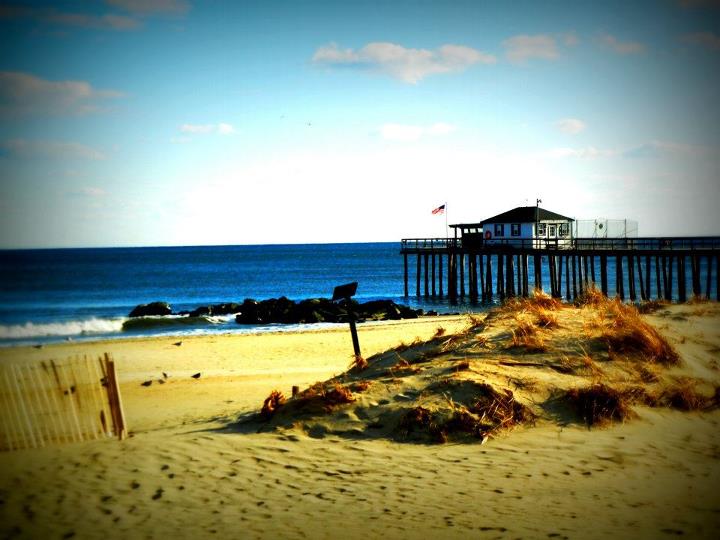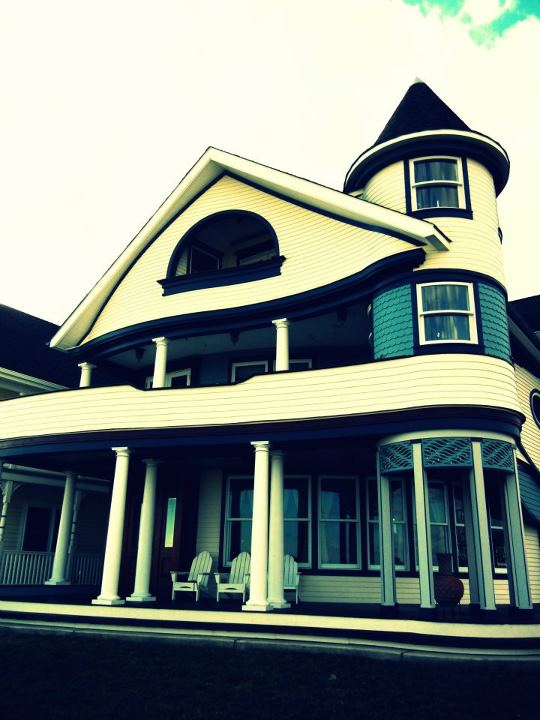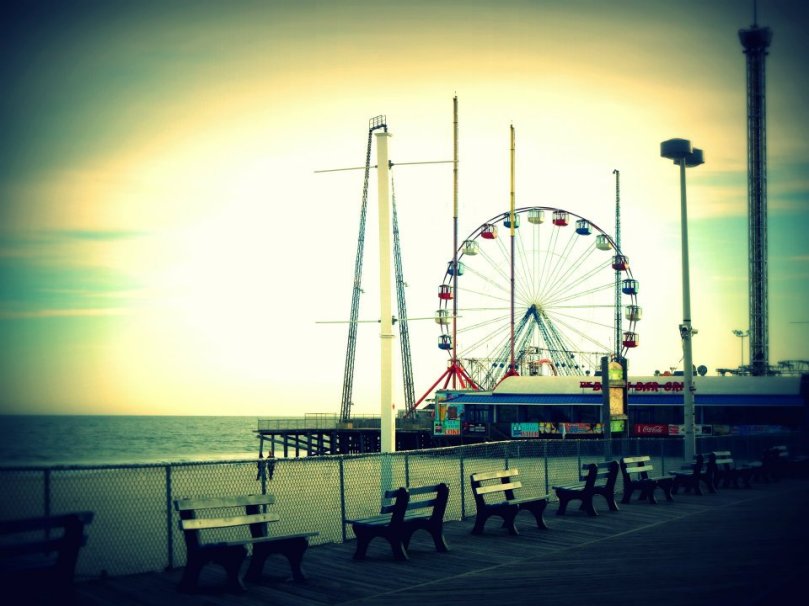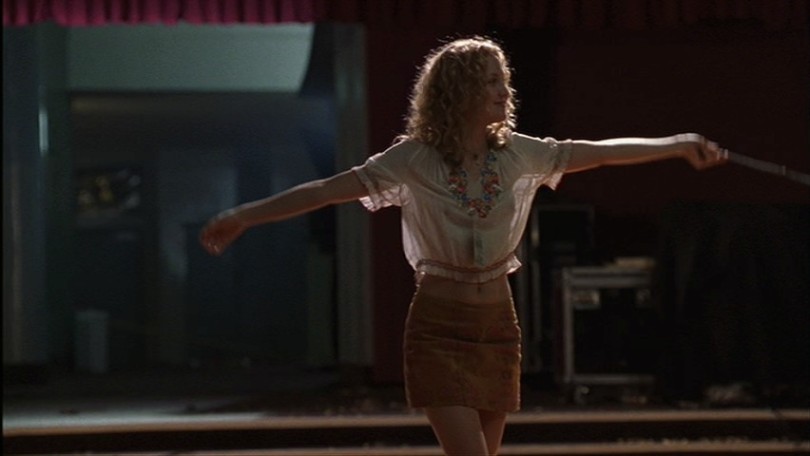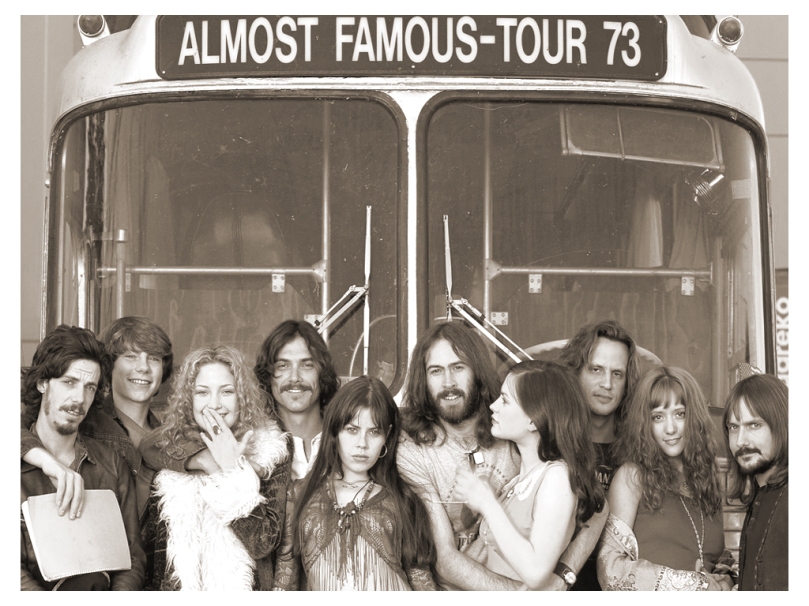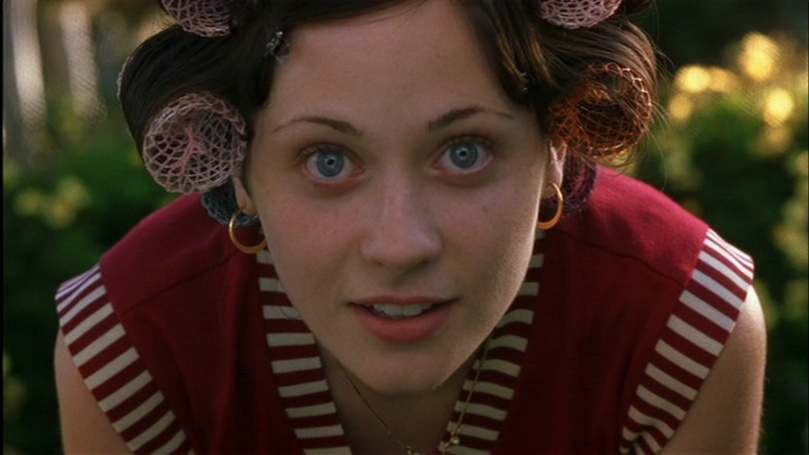Last night I went to the movies to see Into the Woods, which is based off Stephen Sondheim’s play of the same name. For those who are unfamiliar with the title, it is a Broadway musical combining the stories of Little Red Riding Hood, Cinderella, Jack and the Beanstalk, Rapunzel, and a few other fairytale favorites with a serious twist. Unlike the fairytales we all know through the Brothers Grimm or Disney, Sondheim’s characters experience major challenges and are forced to face the consequences of their actions and choices. Essentially, it is a fairytale about the reality of human nature and the ambiguity of life. Fast forwarding to the end: there is no “happily ever after.” Much like in real life, there is just, “After.”
My first exposure to Into the Woods was my sophomore year in college when I was cast as “The Witch,” the seeimingly stereotypical ugly, old spinster of fairytales who seems to enjoy making life difficult for all around her so everyone else can experience her misery. In the fairytales of my youth, the witch, much like other stock characters, is not explained or humanized. She is flat and two-dimensional. The stories of our youth never asked: what made her the way she is? What more is there to this character? Into the Woods changes that, and as the play progresses we begin to see the character take shape as a three-dimensional woman: someone who was wrongly robbed of her youth and who desperately wanted to love someone and be loved fully in return.
She keeps her daughter, Rapunzel, locked in a tower with no doors or stairs, but when a Prince happens upon Rapunzel by chance, things begin to change. Rapunzel is drawn to the Prince and wants to leave her mother’s safety. When the witch finds out, she scolds Rapunzel angrily, saying, “Children should listen!” And we really begin to see the character become human as she sings:
Don’t you know what’s out there in the world?
Someone has to shield you from the world.
Stay with me.
Princes wait there in the world, it’s true.
Princes, yes, but wolves and humans, too.
Stay at home.
I am home.
Stay with me,
The world is dark and wild.
Stay a child while you can be a child.
Although all of the songs in the show are of importance, a few really stand out as carriers of the central message: the world is dark and wild and full of humans and princes and wolves and wolves dressed in princes’ clothing.
Often, Cinderella’a Prince (Prince Charming) is played by the same actor who plays the Big Bad Wolf, which really hammers the theme of the multiple ways evil masquerades as good; and even more than that, the ambiguity behind it. Unfortunately, this was lost in the movie version. Chris Pine played Cinderella’s Prince and Johnny Depp played the Wolf, and while I enjoyed Depp in the role, it watered down the true meaning of why the actor is supposed to be double-cast. Cinderella’s Prince is charming and handsome, but he is also a lothario, unsatisfied by one woman and continuously searching for the next thrill. However, as mentioned above, when Cinderella confronts him about his unfaithfulness, he does not lie to her–he tells her he thought he could be happy with her alone. With this admission the character proves his own complexity because he willingly admits his wrong, and both part on their separate ways. While the Prince is definitely not a character who displays positive traits like courage or integrity, he isn’t exactly a villain either, as he has no outright malicious designs. He is simply a human motivated by his own selfish desires.
Happily ever after?
The story of Cinderella and the Prince is important to Into the Woods because it takes the story and asks the real questions: exactly what WAS that fabled, “Happily Ever After”? What did Cinderella and the Prince actually have in common? What were their common interests? Assuming Cinderella only received an education up to thirteen or so, what was her actual level of knowledge/cultural awareness? Was she, as a simpleton, able to adapt to the Royal Family? How did she and the Prince keep ‘the spark’ after those butterflies began to wear off? Were they always faithful to one another? What kind of a person was Cinderella and what kind of a person was the Prince? What would have happened if one of them got sick or they had a child with a serious illness? Would their marriage make it? Although I, like many other little girls, enjoyed watching the Disney cartoon full of pretty gowns and singing mice, as an adult I recognize the poor message behind the story. It basically tells children that someone will someday come along to rescue them (as long as they are pretty) and everything in life will then just magically go swimmingly. They will be rescued from poverty, or from an abusive family, or from the boring hum-drum of their life. This is a poor message to send to children; because the reality is that we are the only ones who can rescue ourselves, and more often than not, there is no “Happily ever after,” there is just “After,” and it contains both happiness and sadness, good and bad times.
There is no prince; there are just humans.
***
The First Act ends with what we would normally call a “Happy Ending,” but even so it is left with some outstanding ambiguities. The Second Act IS the play. In the First Act, there is a narrator, who leaves clues to help guide the characters along, but he is killed at its end. In the Second Act, the characters are left to fend for themselves, with no one to guide them. People die, a major conflict arises, and we realize that there is neither a true protagonist nor a true antagonist. Each character has experienced a shortfall in their moral foundation at some point: a little white lie, a lack of good judgement, deception, theft, unfaithfulness, selfishness. The characters play the blame game for awhile until they realize in order to save themselves, they must forego the issue of “blame” and recognize they must do what is necessary to survive, and even that in itself will have consequences. Red Riding Hood tells Cinderella she is ashamed of her actions because she is about to kill a giant–who is a person, too–and Cinderella begins to sing another song central to the meaning of the play, “No One is Alone.”
The characters sing:
Witches can be right, giants can be good,
you decide what’s right, you decide what’s good.
Just remember someone is on your side,
Someone else is not.
Into the Woods is a poignant portrayal of human nature. It takes the fairytales of our youth and transforms them into cautionary tales about the complexities of life. It takes the two-dimensional characters of traditional stories and turns them into people. Witches, wolves, and princes all become the same thing: HUMAN. Although I enjoyed Into the Woods when I was younger, as I have gotten older and experienced more in my own life, the messages and emotions behind everything in the play become much more clear and apparent. It is a dark story, but it is not one completely without hope. All characters go through major transformations and grow from the hardships they endure. Most importantly, they learn compassion toward others from their own personal challenges, and indeed they do learn that in life, no one is alone.
Wishes come true, not free.
***
-KP out

